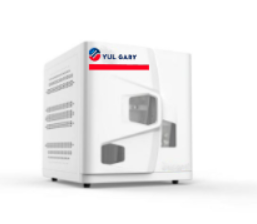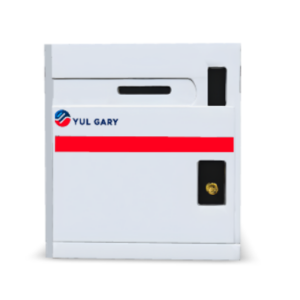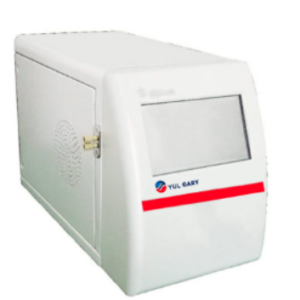Description
The YG1800 Total Organic Carbon Analyzer stands as a leader in TOC analysis technology, offering unparalleled precision and versatility. This advanced analyzer features high-temperature combustion at 680°C, ensuring complete sample digestion, while the NDIR detection provides a sensitivity of 50ppb. It can handle an impressive range of 0 to 30,000 mg/L, making it indispensable for both ultrapure water and wastewater analysis. Equipped with a patented signal management system, the YG1800 allows for real-time monitoring, auto-leak detection, and precise flow control, delivering laboratory-quality results consistently.
Market Price
The YG1800 Total Organic Carbon Analyzer is priced within the premium industrial analyzer range, offering exceptional value for environmental laboratories, wastewater treatment facilities, and industrial process monitoring. The general market range for such advanced equipment falls between $25,500 and $26,100, reflecting its cutting-edge technology and wide-ranging capabilities.
Frequently Asked Questions
- How does high-temperature combustion compare to UV/persulfate methods? It provides more complete oxidation of refractory compounds and better accuracy for high-TOC samples (up to 30,000 mg/L).
- Can it handle seawater or high-salt samples? Yes, with a salinity tolerance of up to 85g/L, it is ideal for marine studies and industrial wastewater.
- What gas supply is required? It requires oxygen with a purity of ≥99.995%. We recommend our optional oxygen generator for continuous operation.
Advantages and Disadvantages
Advantages
- Industry-Leading Range – Capable of handling 0-30,000 mg/L without the need for dilution.
- Complete Oxidation – High-temperature combustion ensures even refractory organic compounds are efficiently digested.
- Smart Safety Systems – Features auto-leak detection and low-current design to enhance operator safety.
Disadvantages
- Higher Operating Costs – Requires a continuous supply of oxygen gas.
- Larger Footprint – Not suitable for space-limited laboratories.
- Analysis Time – Takes 5-10 minutes per sample compared to 2-3 minutes for UV methods.
Field Use
The YG1800 shines in applications such as wastewater treatment plant monitoring, petrochemical and pharmaceutical wastewater analysis, and environmental research on polluted water systems. Its high salinity tolerance is especially beneficial for coastal facilities and food processing plants handling brine solutions. Additionally, it is an asset in industrial process control, such as bioreactor monitoring.
Recommendations
To ensure optimal performance and longevity of the YG1800, consider the following:
- Install an oxygen monitor when utilizing gas cylinders.
- Regularly clean the combustion tube, especially after analyzing high-TOC samples, recommend quarterly maintenance.
- Use PTFE-lined tubing for handling corrosive samples.
- Conduct monthly calibrations to maintain regulatory compliance.
- Explore our maintenance package for routine catalyst replacement to extend the analyzer’s lifespan.
Features
- High-temperature combustion for thorough oxidation
- NDIR detection with advanced sensitivity
- Wide measurement range from 0-30,000 mg/L
- Real-time monitoring and precise flow control
- Accommodates high salinity samples (up to 85g/L)
- 32-bit processing technology for rapid data analysis
- Adjustable cooling module for optimal performance
- Multi-parameter measurement: TC, TIC, TOC, NPOC
- PC software control for advanced data management
Technical Specifications
| Model | YG1800 |
| Detector | NDIR |
| Parameters | TC, TIC, TOC, NPOC |
| Digestion Mode | High Temperature Combustion |
| Operation Mode | PC Software Controlled |
| Application | Liquid Sample |
| Gas Requirement | Oxygen ≥ 99.995% |
| Measurement Range | 0-30000mg/l (ppm) |
| Detection Limit | 50μg/l (ppb) |
| Repeatability | 3% |
| Maximum Salinity | 85g/l |
| Power | AC220V, 50Hz or AC110V, 60HZ, 200W |
| Size | 430*455*440mm |





